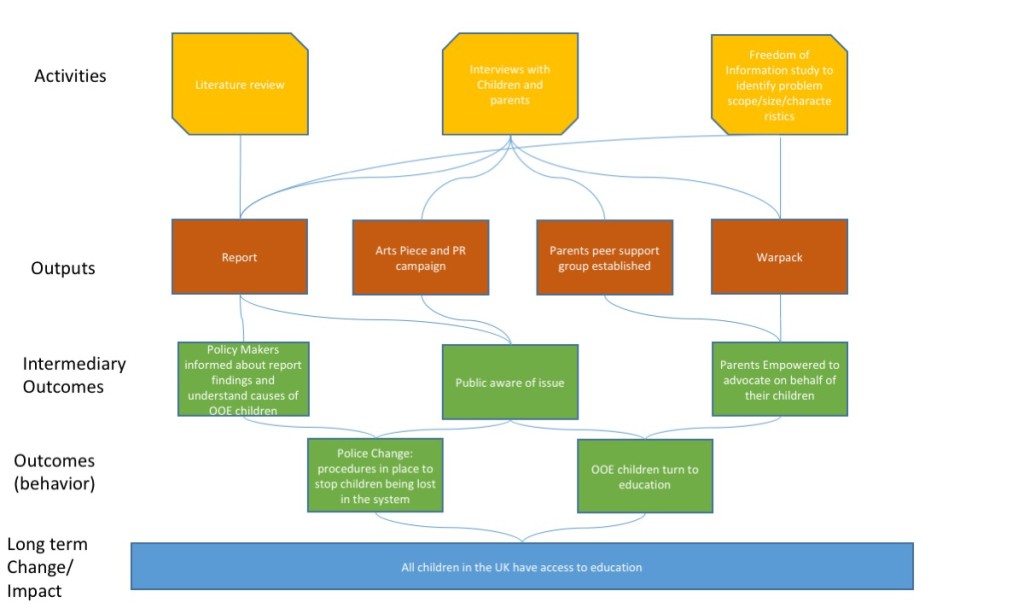This week eQuality Time applied for funding for a new project. We thought this would be a good time to put some of the information here.
We’re going to talk about the problem, what we’d like to do about it, and the nature of the outputs.
Regular readers will note a significant change in tone and approach. The changes in tone is partly due to the circumstances (previously we’ve written the posts before the grant, rather than the other way around). It’s also got a lot to do with the nature of the project – previous projects were technology-lead, we can put something in front of the public or a funder and say “There it is, look how it solves your problem”, this project is information-lead so we have to take a much more classic development approach with a full problem analysis and Theory of Change.
We remain in the very early stages of the project – we’d love feedback or questions. There’s bound to be places were clarification is needed and we’d be grateful if people would point us in the right direction.
The problem
At any given moment there are 10000 children in the UK that are missing out on education (Pupils missing out on education – Ofsted report 2013 (http://goo.gl/NCWo5l)). This might be because of exclusion, special needs, or a range of other factors. A significant proportion of this 10000 live in London.
Education is a vital part of society – children with poor education prospects are more likely to be involved in crime, drugs, and gangs, and less likely to find full time employment later in life. By allowing this situation to perpetuate we are preparing for a legacy of poor outcomes and disappointment.
A major barrier in providing education for these ‘missing’ children is that almost nothing else is known about them – their backgrounds, situations or educational needs. Without this information, all attempts to tackle the problem are doomed to failure. This includes a lack of broad quantitative information (are we dealing mostly with exclusion, or with special educational needs? What are the areas of London with the largest concentrations of ‘missing’ children) and qualitative research (how do children end up leaving education? What are the cracks in the system that cases fall through? Are there representative stories that help us understand the situation?).
We seek to address this missing information and use it to make a difference at both the grassroots and public policy levels by the collection of data and the provision of support.
Our Activities
We propose two major activities. We describe them in the context of the outputs that they will produce.
Quantitative data gathering
We shall carry out a quantitative data gathering exercise covering all of London’s local authorities, examining the number of children missing out on education in each borough and the demographics involved. Data will be gathered for this by a coordinated series of Freedom of Information requests. This will provide vital information on the problem in it’s own right, contextualize further work, and inform our other deliverables.
Qualitative Data gathering and network building
Our second activity is a program of interviews and focus groups with children and families outside of education. This activity will examine the process that families go through, and the circumstances that lead to children vanishing from the educational system. It will also examine the effects on families following on from this process. One particular area of focus is that we shall be interviewing families that have successfully lobbied for educational provision. Their stories will form examples of good practice for our ‘Warpack’ output described below. This activity is as much about building a network and putting families in contact with each other as it is about gathering information. By grouping parents together we allow them to access peer-support and relieve feelings of isolation and helplessness.
These activities will have three direct outputs:
- A quantitative and qualitative report will be written directly to target policy makers.
- An arts piece, examining the stories of children missing form education and advocating on their behalf towards the public and press. The types of stories told and the information to back it up will be informed by output 1.
- The production of ‘Warpacks’. Our initial scoping research suggests to us that a large number of the children missing due to education are children with special needs to have been excluded because the local authority will not pay for the costs for the schools to meet those needs. This policy is often unevenly applied, with those parents challenging decisions in court being almost entirely successful. We will examine successful cases and produce a ‘Warpack’ of materials for parents and carers to inform them properly of their rights, the success of others and the best way of challenging decisions successful. We expect these advice packs to speed up the return of many missing children into education.
Theory of Change
Our theory of change for the project looks like this (click for larger version):

Accessible version here: 10000 Theory of Change.
